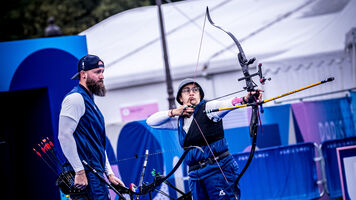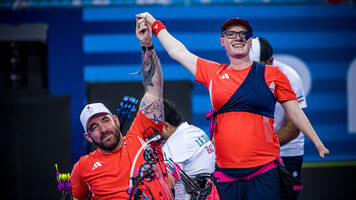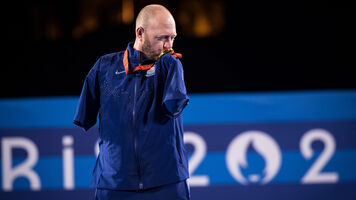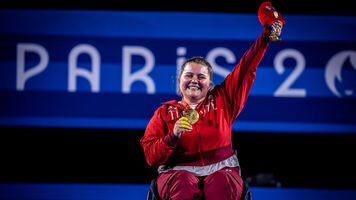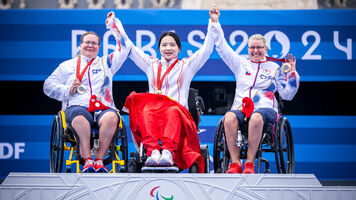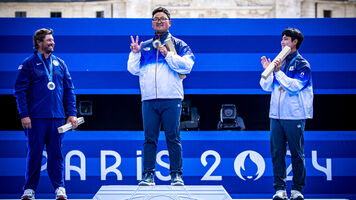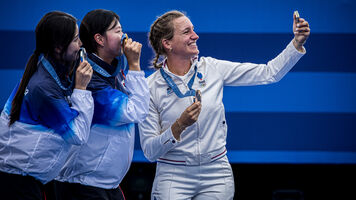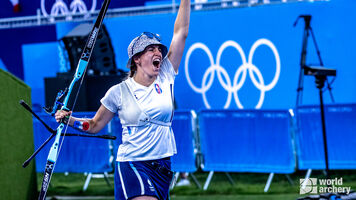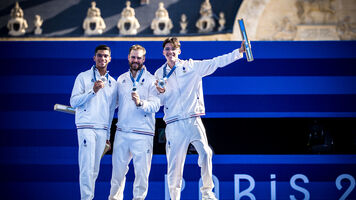Olympic archery athletes preview: #4 Europe
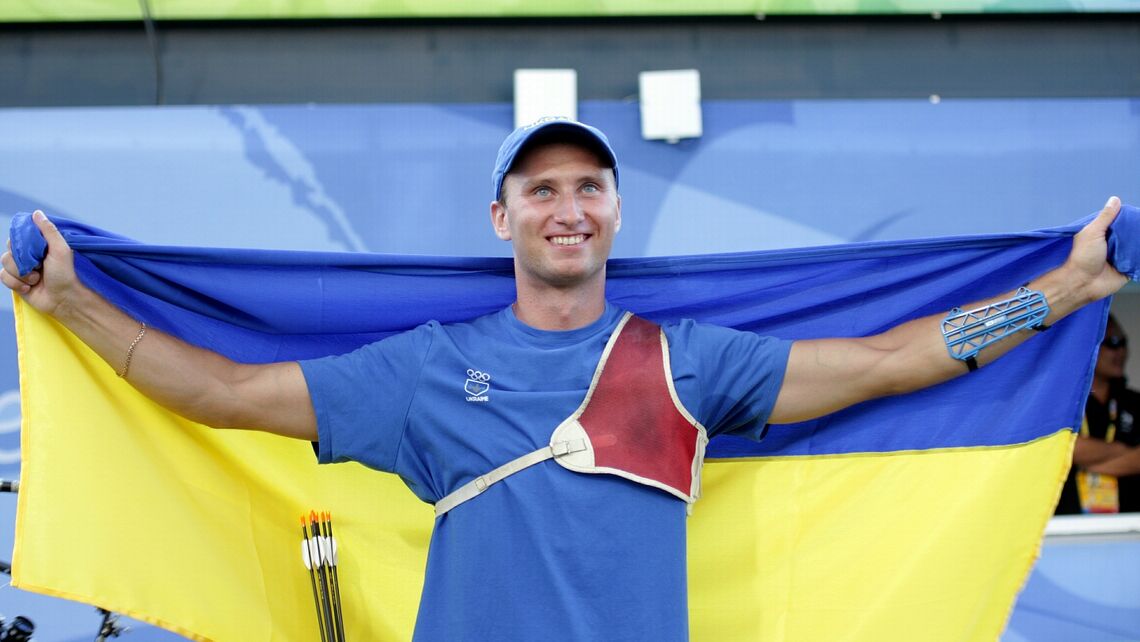
Read the rest of our regional roster previews:
Continent: #4 Europe
Number of athletes: 46
Number of nations: 22
Number of first-time nations: 2
The One-to-beat
The most decorated European Olympian on the Rio roster is Marco Galiazzo. Attending his fourth Games, the Italian man already has three medals: Individual gold from 2004, team gold from 2012 and team silver from ’08.
The story
Europe is in the middle of a changing of the guard. It has the most experienced Olympians on the field in Psarra (five Games), Galiazzo, Folkard, Esebua and Narimanidze (all four) – and some of the youngest athletes.
Is this a last dance for some of the veterans, before a full refresh completes in 2020?
The Nations
A nation-by-nation run-down of the continent’s athletes, history and a target, which – if achieved – would mean a really successful archery competition in Rio. Medal count is taken from the modern era, post-1972.
Azerbaijan 
Athletes: Olga Senyuk (woman)
Olympic record: 0 medals
Intel: The legacy of the first European Games in Baku, Azerbaijan? Senyuk qualified the nation its first archery place at the Games at the European Archery Championships in 2016, finishing third.
Target: Second round – women
Austria 
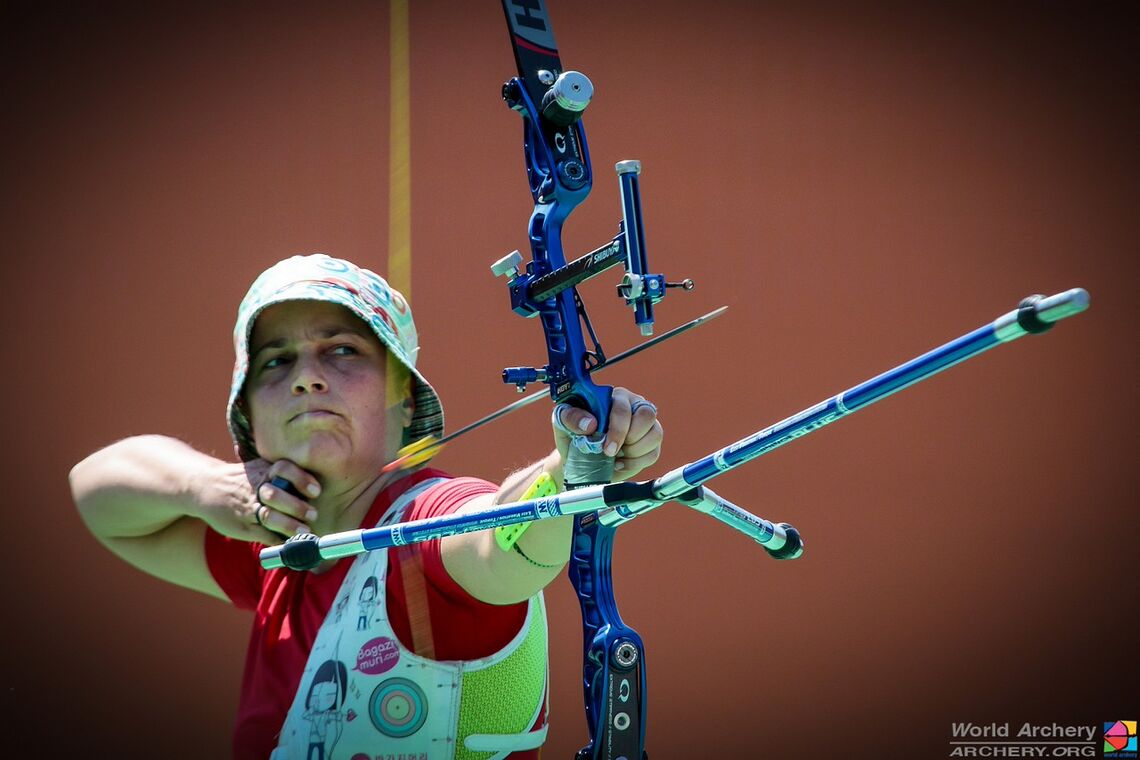
Athletes: Laurence Baldauff (woman)
Olympic record: 0 medals
Intel: Austria’s first ever archer qualified to a Games – though athletes competed in the event prior to the quota system being brought in. Baldauff won her spot at one of the first opportunities, in the secondary tournament at the worlds in Copenhagen.
Although she started archery in 1990, she didn’t represent her country until 2012.
Target: Second round – women
Belgium 
Athletes: Robin Ramaekers (man)
Olympic record: 0 medals
Intel: A youth world champion in 2013, in Wuxi, China, Ramaekers is Belgium’s first archery Olympian since 2000.
Paul Vermeiren, who competed in 1996, ’92 and ’88, finished fourth in Antalya. He was the second Belgian archer to finish fourth at a Games, after Robert Cogniaux in 1972, and has reportedly wished Ramaekers luck by saying: “I hope you do just a little better than me”.
Target: Top eight – men
Belarus 
Athletes: Anton Prilepov (man)
Olympic record: 0 medals
Intel: Round two for Prilepov, who finished ninth in Athens in 2004. He finished third at the European Games in 2015.
Belarus is a staple in the archery competition at the Games – and has sent at least one representative to each since 1996. The first year was the closest to the medal for the nation – as Olga Yakousheva finished fifth.
Target: Top eight – men
Spain 
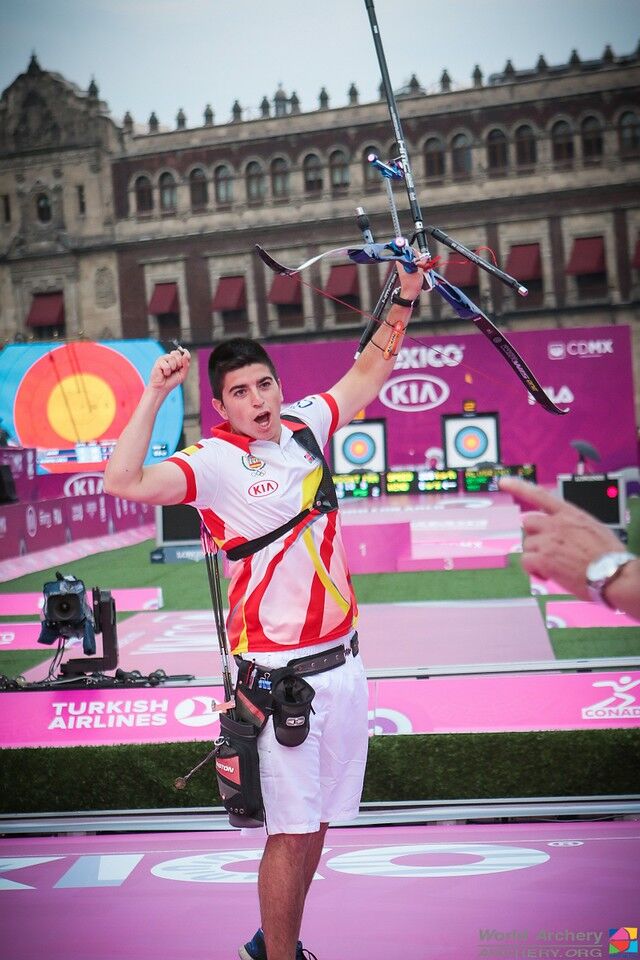
Athletes: Adriana Martin (woman); Miguel Alvarino Garcia, Juan Rodriguez, Antonio Fernandez (men)
Olympic record: 1 medal – 1 gold
Intel: The last Spanish men’s team to compete at the Olympics won a gold medal – and on home soil, in Barcelona, in 1992. That remains Spain’s only podium finish in archery to date.
Alvarino Garcia has been known to turn it on when necessary. In 2015, he won the European Games and the Hyundai Archery World Cup Final.
Target: Top 16 – men, third round – women
Estonia 
Athletes: Laura Nurmsalu (woman)
Olympic record: 0 medals
Intel: Estonia has had three Olympic arches compete previously – the last in 2012 – but none have ever won a match. Nurmsalu’s task in Rio will be to break that trend.
She qualified the place at the final world quota tournament, one day after Estonia finished fourth in the team qualification event – in which the top three squads were issued with invitations.
Target: Second round – women
Finland 
Athletes: Taru Kuoppa (woman), Samuli Piippo (man)
Olympic record: 4 medals – 1 gold, 1 silver, 2 bronze
Intel: Probably not the nation you’d expect to have such an impressive medal haul at the Olympics. Tomi Polkalainen won in Moscow in 1980, then led the Finnish men’s team to silver 12 years later.
Both Kuoppa and Piippo are first-time Olympians.
Target: Top 16 – men, top 16 – women
France 
Athletes: Pierre Plihon, Jean-Charles Valladont, Lucas Daniel (men)
Olympic record: 2 medals – 1 gold, 1 bronze
Intel: France was one of the nations missing from the Olympic roster as the 2016 qualification process played out. With ’92 Olympic Champion Seb Flute mentoring the young team, they dug deep to secure a team invitation at the final world qualification tournament.
Valladont, a severely-committed individual when on the shooting line, muscled his way to a European title in 2016.
Target: Top four – men
Great Britain 
Athletes: Naomi Folkard (woman), Patrick Huston (man)
Olympic record: 4 medals – 4 bronze
Intel: At 2012, the Brits – the host team – received a full six-athlete quota. For Rio, the nation had to qualify. Until the Europeans, also in Britain, the team had no spots – then Huston added a men’s, and finished third in the championships, before Folkard added a women’s invitation two weeks later in Antalya.
Huston is a first-time Olympian. Folkard’s at her fourth.
The last British medallist was Alison Williamson, who took bronze in Athens in 2004. (Larry Godfrey finished fourth the same year.)
Two of the four bronze medals on the British Olympic record belong – in part – to Rio coach Richard Priestman, who won them in the team events in 1988 and 1992.
Target: Top 16 – men, top 16 – women
Georgia 
Athletes: Khatuna Narimanidze, Yulia Lobzhenidze, Kristine Esebua (women)
Olympic record: 0 medals
Intel: Between the three Georgian girls, there’s nine caps of Olympic experience (including Rio) – four each are attributed to Narimanidze and Esebua. The latter has done four in a row, but the former has the best finish.
She made it to the last 16 in 2008, before losing to Mexico’s Mariana Avitia.
The last time Georgia had a women’s team at the Games, in 2000, it finished 12th.
Target: Top eight – women
Germany 
Athletes: Lisa Unruh (woman), Florian Floto (man)
Olympic record: 2 medals – 1 silver, 1 bronze
Intel: Both first-time Olympians, Unruh and Floto will represent Germany’s archery interest at the Olympics in 2016 - which hasn’t yielded a medal since 2000. Both of Germany’s podium finishes have come via a women’s team, too.
Unruh and Floto will have to go it alone.
The former has the stronger pedigree. She’s the reigning world champion in both indoor and field disciplines.
Target: Top eight – women, third round – men
Greece 
Athletes: Evangelia Psarra (woman)
Olympic record: 0 medals
Intel: The most experienced of all the Olympians on the Rio 2016 field, Psarra competes at her fifth in Rio de Janeiro – she’s been to each Games since 2000. Her best finish came on home soil in 2004, when she was knocked out by the eventual gold medallist in the last eight – and took seventh overall.
Target: Third round – women
Italy 
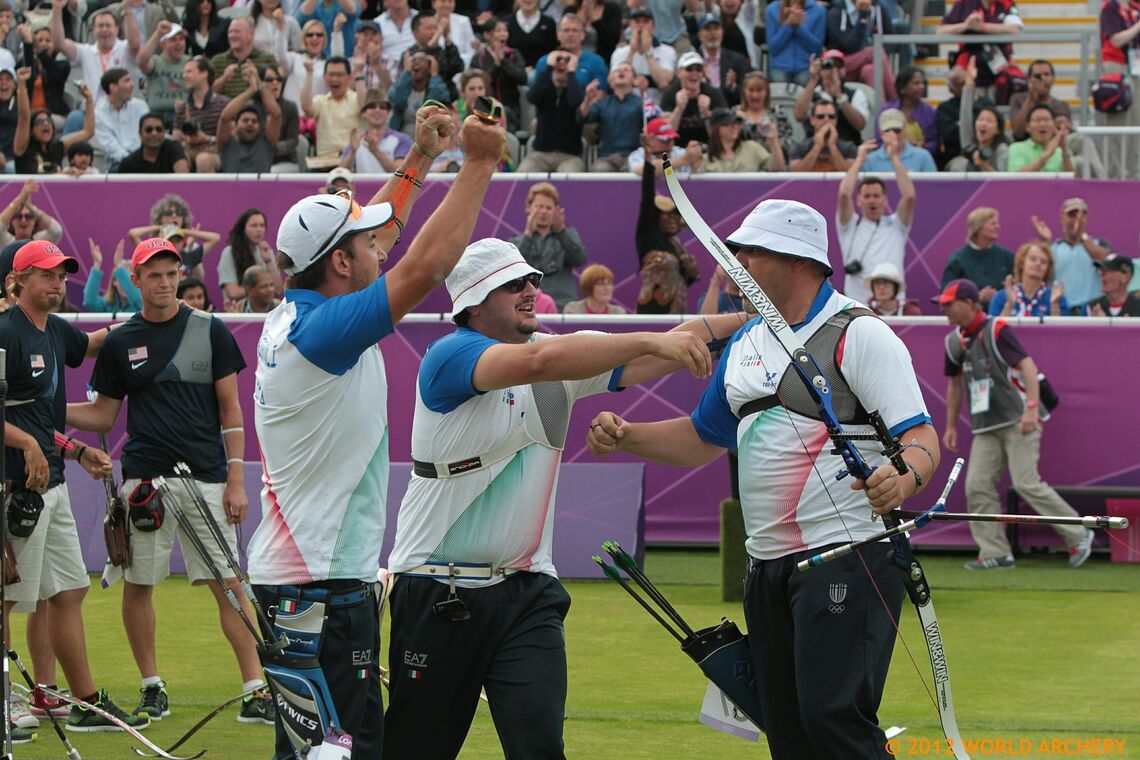
Athletes: Guendalina Sartori, Claudia Mandia, Lucilla Boari (women); Marco Galiazzo, Mauro Nespoli, David Pasqualucci (men)
Olympic record: 7 medals – 2 gold, 2 silver, 3 bronze
Intel: The only European nation with a full six-athlete roster at Rio 2016, Italy won quota spots for both squads in style. The men’s place was won after a run of close shoot-offs at the first qualifier and the women’s, after a run of close matches, at the last.
Italy is the defending men’s team Olympic Champion – and two members of that gold-medal-winning squad return from London: Athens 2004 individual champ Galiazzo and Nespoli.
Pasqualucci is the Olympic rookie – and he replaces Michele Frangilli, who pulled out the last-arrow 10 to win the London 2012 gold.
Target: One medal – men or women
Republic of Moldova 
Athletes: Alexandra Mirca (woman)
Olympic record: 0 medals
Intel: Mirca got her first taste of silverware with London 2012 Olympian Dan Olaru at the European Archery Championships in 2016. The pair won the mixed team event.
She has experience of multi-sporting events, having competed at the European Games in Baku in 2015 – but Rio is her debut at the Games.
Target: Top 16
Netherlands 
Athletes: Rick van der Ven, Sjef van den Berg, Mitch Dielemans (men)
Olympic record: 1 medal – 1 bronze
Intel: Van der Ven finished fourth at London 2012; van den Berg was second at the European Games in Baku – and, with Dielemans, the three took bronze as a team at that same event.
If they put it together, the body-cooler-wearing trio from the Netherlands could be one of the most dangerous men’s teams on the field.
Target: One medal
Norway 
Athletes: Baard Nesteng (man)
Olympic record: 0 medals
Intel: Quietly racking up a third Olympic appearance, after 2000 and 2012, Baard’s best finish came at the latter. He was ninth, losing to eventual silver medallist Furukawa Takaharu in the third round.
Target: Top 16 – men
Poland 
Athletes: Karina Lipiarska-Palka (woman)
Olympic record: 2 medals – 1 silver, 1 bronze
Intel: Poland hasn’t won an archery medal at the Olympic since 1996. Lipiarska-Palka has won a number of team medals at the world level, but nothing individually.
The world number 41 qualified her invitation to her first Olympic Games in the secondary tournament of the main world qualifier at the World Archery Championships in 2015.
Target: Second round – women
Russia 
Athletes: Ksenia Perova, Inna Stepanova, Tuiana Dashidorzhieva (women)
Olympic record: 1 medal – 1 bronze
Intel: The World Archery Champion recurve women’s team, Perova, Stepanova and Dashidorzhieva were cleared for the Olympics by the World Archery Executive Board after issues were unearthed with clean sport in Russia.
As Russia, the nation has only taken one medal – in the recurve men’s individual event. The women, who are by far talented enough, have some catching up to do!
Target: Top four – women
Slovakia 
Athletes: Alexandra Longova (woman), Boris Balaz (man)
Olympic record: 0 medals
Intel: The second of the first-timers on the European board, Slovakia qualified two athletes in Longova, 22 years old, and 18-year-old Balaz. Both are wildcards, at ranks of 57 and 202 in the world, respectively.
Balaz was at the Youth Olympics in Nanjing in 2014.
Target: Second round – men, second round – women
Sweden 
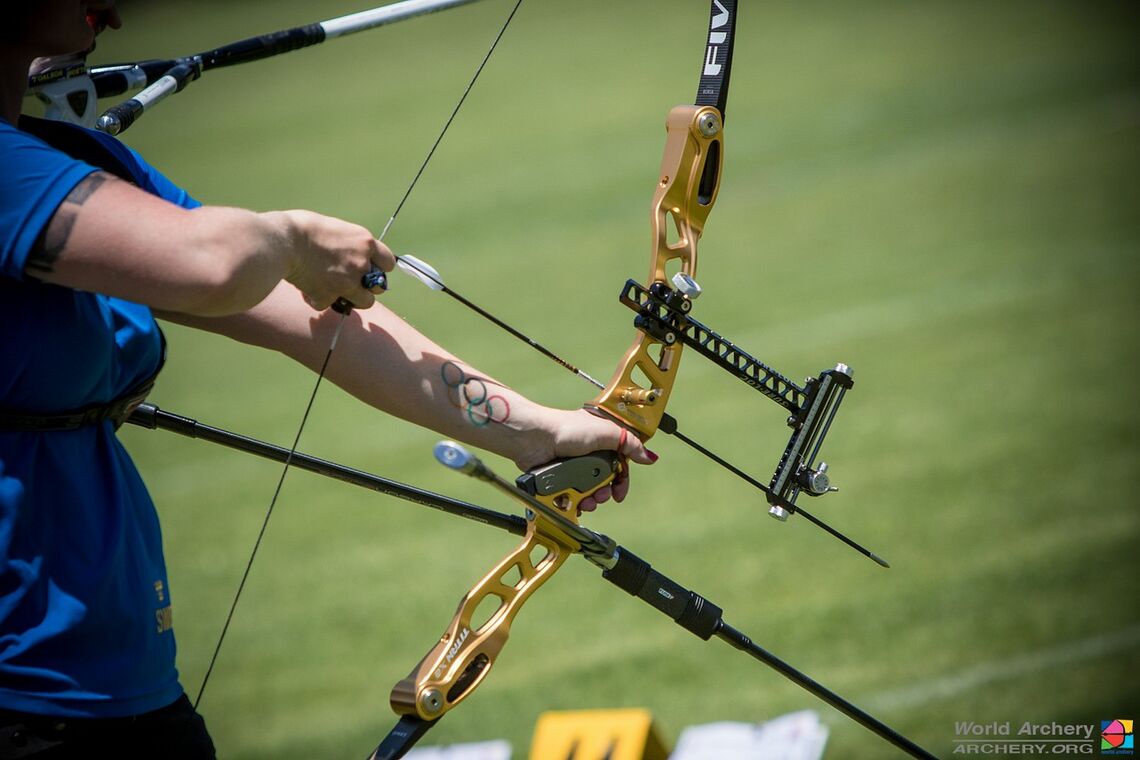
Athletes: Christine Bejerendal (woman)
Olympic record: 2 medals – 2 silver
Intel: A two-time Olympian when she arrives in Rio, Bjerendal shoots with an unconventional style, taken from barebow technique, where she puts all three of her fingers underneath the arrow. She finished 33rd in London.
Both Christine’s father, Goran, and uncle, Gert, were also Olympic archers.
Sweden’s Olympic silver medallists were both men: Gunnar Jervill in 1972 and Magnus Petersson in 1996.
Target: Second round – women
Turkey 
Athletes: Yasemin Anagoz (woman), Mete Gazoz (man)
Olympic record: 0 medals
Intel: Turkey has sent archers to the Games since 1984. The nation’s best result came courtesy Elif Altinkaynak, who finished fourth at Atlanta 1996.
Anagoz and Gazoz might be Turkey’s best chance of a high finish since then.
Gazoz was runner-up at the European Archery Championships in 2016, was a Youth Olympic in 2014 and shot a career-high 678 in the lead-up to the Olympics. Anagoz is ranked 54th in the world, won the European continental qualifier – and in world ranking competition, has never lost a match if it’s gone to a tiebreaker.
The best bit about this pair is that – since both are just 17 years old – Rio is unlikely to be their last Games.
Target: Top eight – men, top 16 – women
Ukraine 
Athletes: Anastasia Pavlova, Lidiia Sichenikova, Veronika Marchenko (women); Viktor Ruban (man)
Olympic record: 4 medals – 1 gold, 1 silver, 2 bronze
Intel: Veteran coach Viktor Sidoruk has one last shot at getting the women’s medal he needs to complete his collection – with a team that’s fresh off a European title win.
The only proven gold-medal winner on the squad, though, is Beijing 2008 Olympic Champion Viktor Ruban, in Rio for his fourth Games in a row. (He also has a team bronze from Athens 2004.)
Through three Games, Ruban’s average finish is 7th – and he’s never failed to make the last 16.
Target: Top eight – men, top four – women
The archery competition at the Rio 2016 Olympic Games starts on the 5 August in the Sambodromo.














































